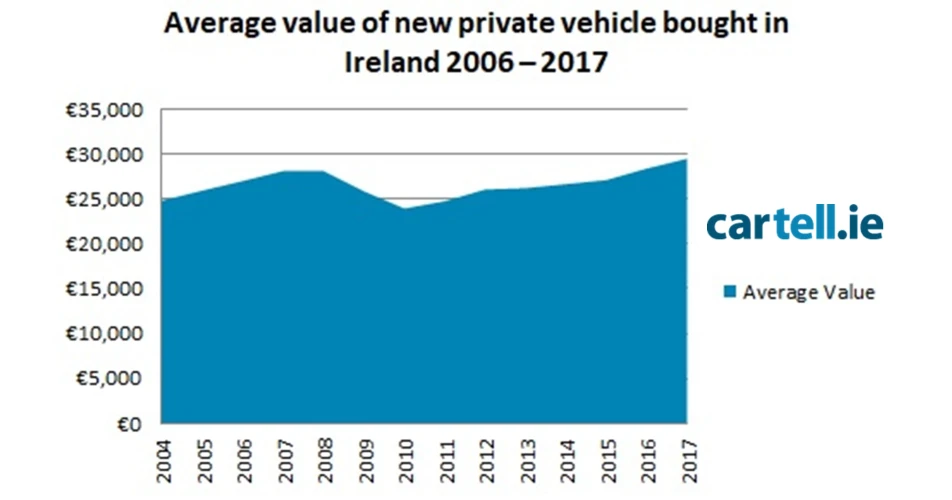The average price of a new car in Ireland is now over €30,000 for the first time. The figure comes from new figures reported by vehicle history and data expert Cartell.ie.
Cartell.ie found the average value of a new vehicle purchased fluctuated with the fortunes of the economy, so, in 2007 at the height of the boom the average value of a vehicle purchased was €28,106 which dropped to €24,758 in 2011 before increasing steadily every year since then as the economy improved.
In 2016 the average value of a new vehicle was already back to boom time levels recording €28,385 while in 2017 the value was up 4% to €29,481. For the first 6 months of 2018 the average value has now hit €30,000 returning a figure of €30,130.
Adjusted for inflation the figure recorded for average value for the 12 months ending 1st January 2018 (€27,786) is higher than the figure recorded for the average value in 2006 (€26,997), right in the middle of the boom.
Cartell.ie says that some of the reasons behind the rise in average values may be;
- Consumers opting for more expensive vehicles, or more expensive vehicle types like SUVs and Crossover vehicles, or MPVs.
- Buyers have more cash to spend or more available lines of credit, especially through PCPs.
- Vehicles are now more expensive to manufacture, to comply with NCAP safety ratings, for example and consumers have higher expectations about vehicle specification.
- There is increased consumer demand for more expensive hybrid vehicles.
John Byrne, Legal and Public Relations Manager, Cartell.ie said, “The buyer of a new vehicle is getting more features than ever before, more technology, more safety, for example. The buyer has also shown an appetite for other features which manufacturers are increasingly rolling out as standard such as alloy wheels and electric windows. Combined, these features increase manufacturing costs and push average values upwards. The buyer may also be opting for more expensive cars owing to more readily available lines of credit or simply because buyers are keen to buy a larger car when fuel economy and motor taxation figures have dropped so significantly across the board.”
